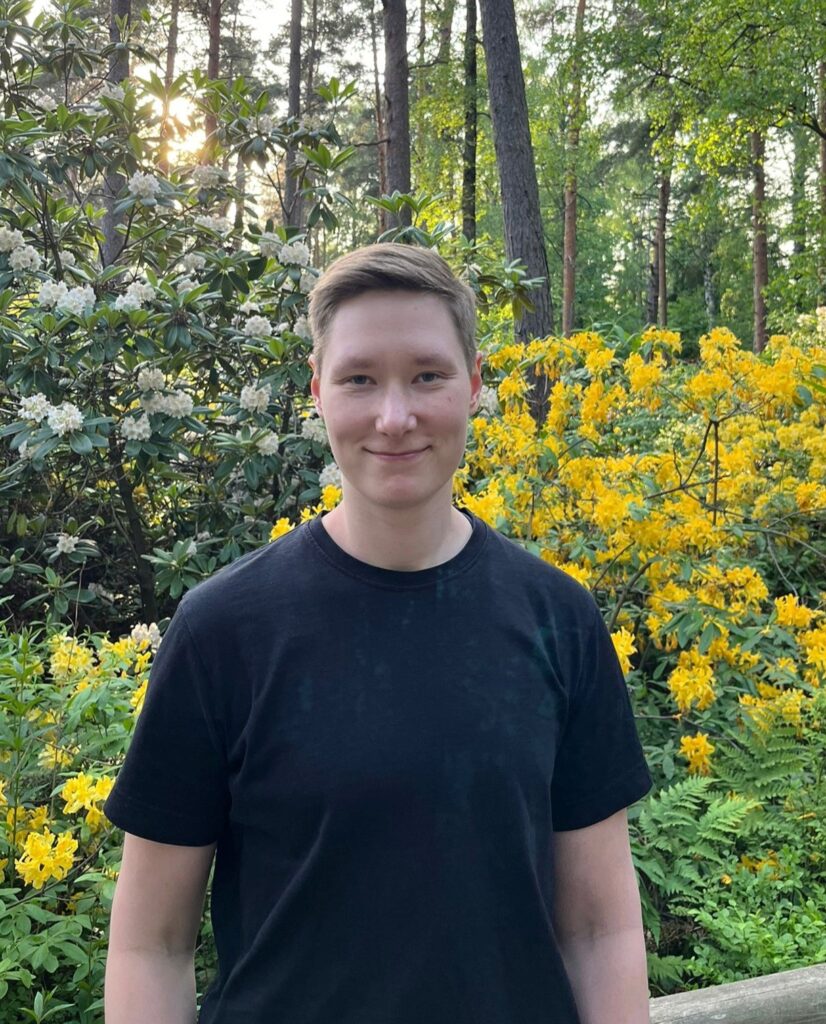Career Story - Sara Inget
Palodex Group

Who are you?
I’m Sara Inget. I started at Bioner as a freshman in 2016, and nowadays I live in Helsinki. In my free time you’ll often find me on the football field or doing other kinds of sports.
How did you end up studying biotechnology and biomedical engineering?
In high school, my dream was to get into medical school, and my guidance counselor also suggested biotechnology and biomedical engineering in Tampere as options. I really wanted to study in Tampere, so I put all three options on my application. I barely missed the cut for medical school and didn’t get into Biopsi either. However, the entrance exam for biomedical engineering went well, and I got a spot at Bioner, which turned out to be a great fit for me. The teekkari culture drew me in from the very beginning. Looking back, the engineering degree and the career opportunities with it were the best path for me, even though it kind of happened by chance.
When did you graduate, and what was your major? What about your minor?
I graduated in summer 2023 with a major in biomaterials and tissue engineering. My minors were commercialization of medical devices and an industrial management module I studied during an exchange in Canada.
My studies overlapped with the merging process of the universities and the Covid years, so my personal study plan changed multiple times and turned into quite a patchwork. For example, I ended up taking fewer lab courses than I had initially planned. In working life though, I haven’t really needed lab skills, instead I would study more programming if I could make the choice again.
If I had to choose my major now, I’d probably pick the device side or health technology & informatics. In my current role, a deeper understanding of devices and software would be useful, and those orientations also provide a broad skill base to build upon in different career paths in our field. That said, biomaterials and tissue engineering is by no means a bad choice either.
Overall, I’d say studies give you just the foundation, most of the real learning happens on the job. I feel like the full spectrum of possible career paths only really starts to unfold once you’ve been working for a couple of years. Project courses are valuable regardless of your specialization, and in my case regulatory courses turned out to be very useful. Skills learned in guild or student association activities are also a benefit in the working life, I sometimes regret not being more active myself.
Did you work during your studies?
Yes, I spent some summers working at a cardboard factory and in my final year I worked as a thesis worker.
What was your first job after graduation, and where do you work now?
I started at my current workplace, Palodex Group, at first as a thesis worker in the Regulatory Affairs and Quality Assurance team. After graduation, I had the chance to continue in the same team as a permanent employee. I still work there as a Regulatory Specialist. In Palodex, we manufacture dental imaging X-ray devices in Tuusula, under the Dexis brand.
How did you end up in your current job?
The regulatory and quality courses I took sparked my interest in the topics. Around the same time, Palodex had a thesis worker position open in that area. A fellow student friend of mine got that position, but a few months later they let me know that another similar role had become available. I applied and got it, and I’ve been here ever since.
Can you describe a typical workday?
A typical day includes supporting product development by researching regulatory requirements in different markets and figuring out how to meet those requirements in device design and technical documentation. Another time-consuming part of the job is device registrations: registering devices for new markets, renewing expiring registrations, or updating registrations due to product changes or new legislation. Some registrations are straightforward, but others can be very complex, since documentation must meet the requirements of every country we sell to.
There are usually one or two (remote) meetings a day, often with our regulatory teams in the US or China. Luckily, I don’t need to know everything myself, since we collaborate with regulatory teams across our corporation to understand and meet local requirements. The work environment is very international, and English is the working language.
Other tasks may include updating quality system documents or investigating and resolving issues together with other departments.
What do you enjoy most about your job?
We have a great team with a strong culture of collaboration and the threshold for asking questions is low. Even though we’re a big company, it’s still easy to approach people from other departments too, which I really value. My role is also quite versatile, I get to see a wide range of what it takes to run this kind of business, since we work with nearly all departments on a weekly basis.
What advice would you give to students in this field?
Don’t worry if you don’t know exactly what you want to do during your career. The right opportunities will come along, and it’s worth trying them out; that’s how you figure out what fits you best, and one opportunity can lead to another. An engineering degree is very versatile regardless of specialization, so don’t restrict yourself only to “your own field” if you’re curious about something else. I’d also highly recommend going on exchange if you’re at all interested and have the chance.
Interviewer and translator: Tuomas Ryynänen